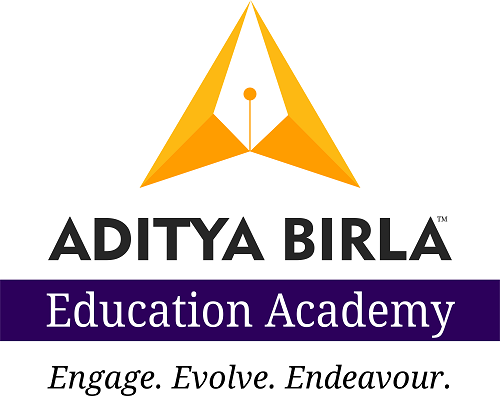The Indian education system has long been focused on content-driven learning, emphasizing rote memorization and examination scores. However, there is a growing recognition of the need to shift towards a competency-based approach that prepares students for the challenges of the 21st century. This blog explores the potential avenues for transforming the Indian education system from a content-centric model to one that emphasizes the development of competencies and skills.
Transforming the Indian education system from content-based to competency-based learning can bring several benefits to India. By focusing on skills rather than rote memorization, students can develop critical thinking, problem-solving, and communication abilities. This shift enhances their employability, aligning education with industry requirements. Moreover, it reduces disparities, offering equal opportunities for all students. Competency-based education nurtures creativity, innovation, and a lifelong learning mindset, preparing students to adapt to a changing world. It also boosts India's global competitiveness and bridges the gap between school and higher education, ensuring students are well-prepared for future success. However, successful implementation requires careful planning, collaboration, and support from stakeholders.
Redefining Learning Objectives:
The first step in this transformation is to redefine learning objectives. Instead of solely focusing on content mastery, educators should prioritize the acquisition of core competencies such as critical thinking, problem-solving, creativity, collaboration, communication, and digital literacy. These competencies will enable students to navigate a rapidly changing world effectively.Integrated Curriculum Design:
Moving away from a subject-based approach, the curriculum should be designed to foster interdisciplinary learning. Integrating different subjects allows students to see the connections between them and apply their knowledge and skills in real-world contexts. This approach encourages holistic development and helps students understand the practical implications of their learning.Active and Experiential Learning:
Active and experiential learning methodologies engage students in hands-on activities, group projects, experiments, and real-world problem-solving. This approach promotes deeper understanding, encourages curiosity, and enhances critical thinking skills. It also cultivates a love for learning and encourages students to take ownership of their education.Assessment of Competencies:
Assessment practices need to align with the shift toward competency-based education. Traditional examinations that focus on memorization should be supplemented with performance-based assessments that evaluate students' ability to apply knowledge and skills in practical situations. Portfolios, projects, presentations, and simulations can provide a more comprehensive picture of a student's abilities.Teacher Training and Professional Development:
For successful implementation, teachers need to be equipped with the necessary knowledge and skills to facilitate competency-based learning. Training programs should focus on pedagogical techniques that encourage active learning, effective assessment strategies, and integration of technology in the classroom. Ongoing professional development opportunities can support teachers in adapting to the evolving educational landscape.Technology Integration:
Technology can play a pivotal role in transforming education. It provides access to vast resources, facilitates personalized learning, and fosters collaboration beyond the physical classroom. Integrating technology tools and digital resources can enhance engagement, provide interactive learning experiences, and support the development of 21st-century skills.Collaboration with Industry and Community:
To bridge the gap between education and the real world, collaborations with industries and community organizations are essential. Partnerships can facilitate internships, apprenticeships, mentorship programs, and projects that expose students to practical challenges and provide opportunities for skill development.
Under the National Education Policy (NEP) 2020, the Ministry of Education in India has introduced several policies aimed at transforming the education system from a content-based approach to one focused on competency development. NEP 2020 emphasizes a shift from rote learning to competency-based education, prioritizing the development of key competencies such as critical thinking, problem-solving, creativity, communication, collaboration, and digital literacy. The policy encourages the integration of curricular and extracurricular activities, promoting holistic learning experiences that encompass arts, sports, vocational skills, and community engagement. It also advocates for a flexible and multidisciplinary curriculum, allowing students to choose from diverse subjects and fields while fostering connections across different domains.
NEP 2020 places significant emphasis on experiential learning methodologies, including hands-on activities, experiments, projects, and field trips, to cultivate critical thinking, problem-solving skills, and practical application of knowledge. Assessment and evaluation practices are redesigned to move beyond traditional exams and focus on comprehensive and continuous assessments, including portfolios, projects, presentations, and performance-based evaluations. The policy recognizes the importance of teachers' professional development and encourages regular training programs, workshops, and collaboration among teachers to enhance their pedagogical practices and familiarity with new teaching methodologies. NEP 2020 also acknowledges the transformative role of technology in education and promotes its integration to enhance accessibility, personalization, and engagement in the learning process.
Collaboration and partnerships between educational institutions, industries, and community organizations are encouraged to provide students with real-world exposure, internships, apprenticeships, and mentorship programs. These policies introduced under NEP 2020 aim to foster a competency-based education system that equips students with the skills and competencies needed for the 21st-century workforce and societal needs, transforming the Indian education system to focus on holistic development and practical skills.
Conclusion:
The transformation of the Indian education system from content-driven learning to competency-based education requires a fundamental shift in mindset, curriculum design, teaching methodologies, assessment practices, and collaborative efforts. By prioritizing competencies and skills, we can better prepare students for the complexities of the modern world, fostering innovation, adaptability, and lifelong learning. Embracing this transformation will help shape a future-ready generation of individuals who can thrive in a rapidly evolving global landscape.
FAQ's
Q1. What is competency-based education, and how is it different from traditional content-based learning?
Competency-based education (CBE) focuses on skills, application, and real-world performance, not just memorisation.
Traditional systems emphasise syllabus completion and recall, while CBE emphasises mastery, problem-solving, critical thinking, and transfer of learning.
Students progress because they can do, not because they have completed chapters. NEP 2020 places CBE at the heart of India’s new school system.
Q2. What are the key components that define a competency-based classroom?
A CBE classroom typically includes:
- Clear, measurable competencies
- Student-led learning pathways
- Real-world tasks and performance-based assessments
- Continuous feedback loops
- Personalised pacing
- Integration of higher-order thinking and 21st-century skills
These elements make learning meaningful rather than mechanical.
Q3. Why is competency-based education essential for India’s future workforce?
Because today’s workforce needs adaptive thinkers, not answer-reproducers.
- analytical reasoning
- Communication
- Creativity
- Collaboration
- digital literacy
- problem-solving
CBE fosters exactly these competencies, preparing learners for global mobility and employability.
Q4. How does NEP 2020 promote competency-based education in Indian classrooms?
NEP 2020 mandates:
- Competency-focused textbooks
- Formative and application-based assessments
- Reduced content load
- Flexible pacing
- Holistic progress cards
- Experiential and multidisciplinary learning
It shifts India from "teaching to the test" to "teaching for understanding".
Q5. What are the challenges schools face while shifting to competency-based frameworks?
Key challenges include:
- Teachers trained primarily in content transmission, not skill-building
- Rigid timetables & textbook-driven practices
- Lack of assessment systems that measure the application
- Large class sizes
- Limited exposure to differentiated instruction
- Need for mindset shifts among teachers and parents
These are systemic challenges, not individual failures.
Q6. How can teachers transition from content-heavy lessons to competency-driven instruction?
They need to restructure lessons around:
- Learning outcomes, not chapters
- Tasks, not notes
- Guided inquiry, not lecture-only teaching
- Rubrics, not marks alone
- Real-life applications, not isolated facts
Teacher upskilling is critical - professional learning programs (like ABEA's competency training modules) equip educators to make this shift.
Q7. What does competency-based assessment look like in an actual classroom?
Competency-based assessment includes:
- Case studies
- Performance tasks
- Projects
- Simulations
- Portfolios
- Reflections
- Peer assessments
Instead of asking "What do you remember?" it asks "What can you apply, create, analyze, or solve?"
Q8. How do competencies improve student motivation and engagement?
Because they give students:
- Choice
- Clear goals
- Sustained feedback
- Real-world relevance
Learners feel empowered when they understand why something matters and how it connects to life beyond the classroom.
Q9. What role does teacher training play in India’s move toward competency-based learning?
CBE cannot succeed without high-quality teacher development.
- outcome-based planning
- differentiated instruction
- formative assessment
- rubric design
- reflective practice
- student-led learning strategies
Aditya Birla Education Academy (ABEA) supports this transition through structured, research-backed competency programs.
Q10. How can schools practically integrate competency-based practices without overhauling the entire system at once?
Schools can begin with small, high-impact steps:
- Identify 4–5 competencies per subject
- Create simple rubrics
- Redesign one unit at a time
- Include application questions in each lesson
- Use portfolios to track progress
- Conduct teacher learning circles
Incremental adoption leads to sustainable change.







